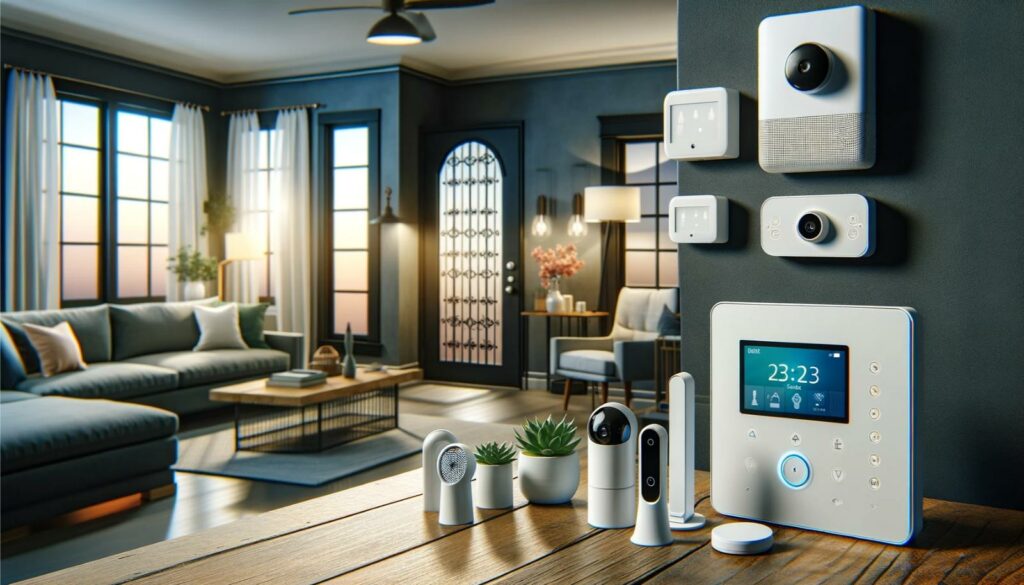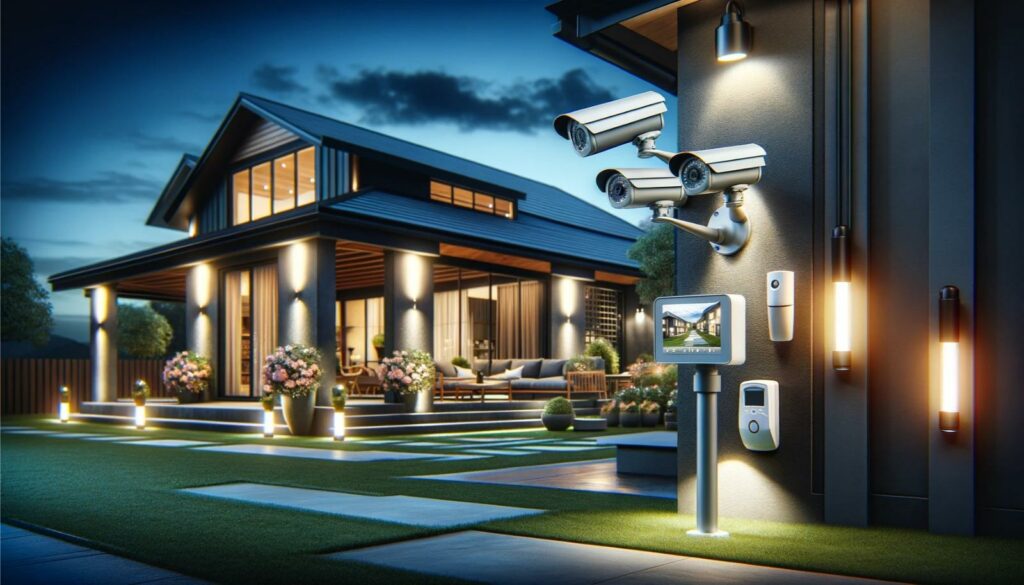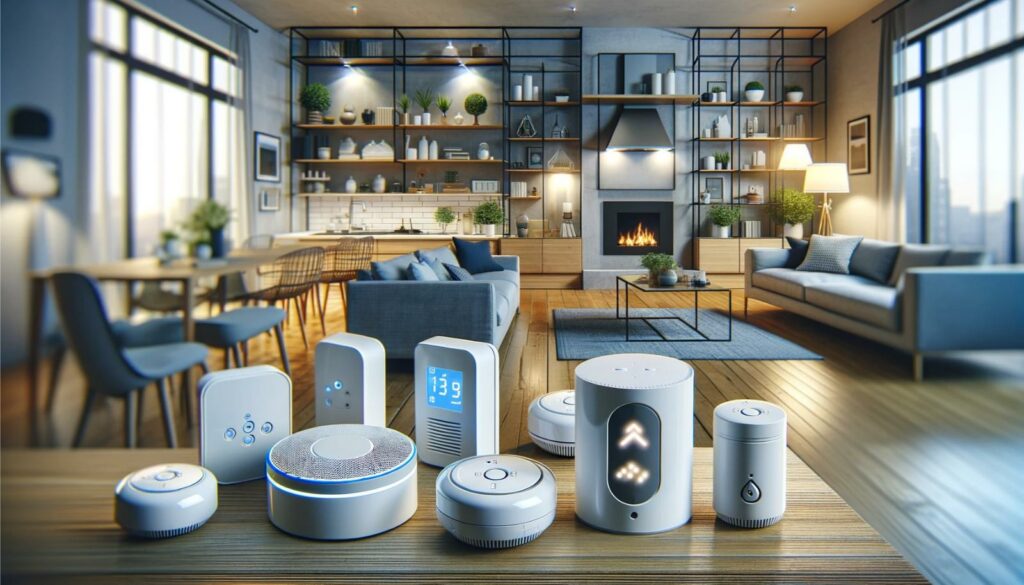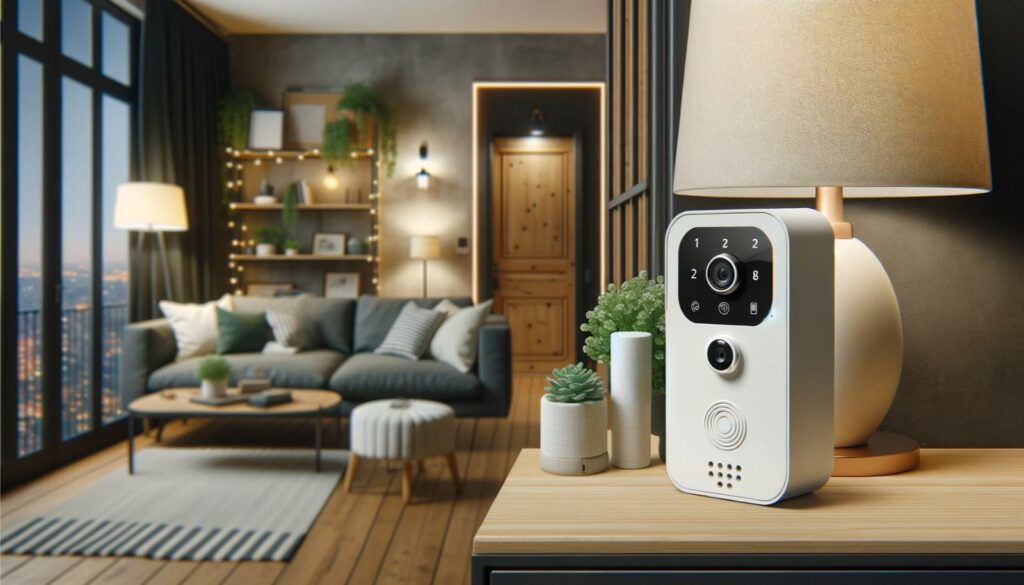Welcome to the ultimate guide on home security systems! In an era where our homes are our sanctuaries, it’s essential to safeguard them from potential threats. But with the plethora of options available, how do you choose the right security system for your needs? Fear not! In this blog post, we’ll compare different types of home security systems, allowing you to make an informed decision and find the perfect fit for your home. Let’s dive in!
Introduction
Your home is more than just four walls; it’s your haven. Protecting it with a reliable security system provides peace of mind and an added layer of defense against intruders, accidents, and emergencies. In this blog post, we’ll explore various home security system options, from traditional wired systems to cutting-edge smart home solutions. We’ll compare them based on cost, ease of installation, monitoring options, smart home compatibility, system components, and customer service. So, let’s begin our journey to a safer and more secure home!
Traditional Wired Security Systems
Traditional wired security systems have long been the go-to choice for homeowners seeking reliable and robust protection. These systems utilize physical wires to establish connections between a wide range of components, including sensors, control panels, and alarms, ensuring seamless and secure communication. The reliability of wired systems lies in their ability to maintain consistent connections, minimizing the risk of signal interference or disruptions. Furthermore, the physical nature of the wiring adds an extra layer of security, making it harder for potential intruders to tamper with or disable the system. By offering a stable and dedicated network, wired security systems provide homeowners with peace of mind, knowing that their property is well-guarded. In contrast to other types of systems, such as wireless or cellular options, wired security systems excel in their reliability and longevity. While wireless systems may be susceptible to signal interferences or range limitations, wired systems offer a highly dependable and consistent performance. Although wired systems may require professional installation and may be more challenging to modify or expand, their proven track record and enhanced security features make them a popular choice among homeowners looking for a robust and enduring security solution.
Pros:
- Reliability: Less prone to interference and system failures.
- Consistent Power Supply: Not dependent on batteries.
- Comprehensive Coverage: Ideal for large properties; can handle multiple sensors and cameras.
Cons:
- Installation: Requires professional installation; more invasive with wires running through walls.
- Less Flexible: Difficult to modify or move once installed.
- Vulnerable to Power Outages: May need a backup power source.
Wireless Home Security Systems

Wireless home security systems offer a plethora of benefits, providing not only flexibility and convenience, but also eliminating the need for extensive wiring. By utilizing advanced wireless communication technology, these systems seamlessly connect various components, ensuring quick and hassle-free installation. Moreover, their scalability allows homeowners to easily expand and customize their security setup as per their specific needs. With their user-friendly interface and cutting-edge features, wireless home security systems prove to be a reliable and efficient choice for safeguarding your home and loved ones. Let’s delve deeper into their advantages and explore how they stack up against traditional wired systems.
Pros:
- Easy Installation: DIY-friendly, no need for drilling or wiring.
- Flexibility: Easy to add or move components.
- Smart Home Compatibility: Often integrates easily with smart home devices.
Cons:
- Battery Dependency: Requires regular battery replacements or recharging.
- Range Limitations: Range of wireless signals can be limited.
- Potential Interference: Subject to interference from other devices.
Smart Home Security Systems
Welcome to the future of home security! Smart home security systems are revolutionizing the way we protect our homes by integrating cutting-edge technology and automation. These advanced systems offer a seamless and connected experience, ensuring that your home is safe and secure at all times.
Imagine having the ability to control your security system right from your smartphone. With just a few taps, you can arm or disarm your system, receive real-time alerts, and even monitor your home via live video feeds. The convenience and peace of mind that comes with this level of control is truly unparalleled.
But it doesn’t stop there. Smart home security systems also offer voice activation capabilities, allowing you to control your system with simple voice commands. Whether it’s arming the system before bed or checking the status of your security cameras, a quick voice command is all it takes to stay in control.
What’s more, these systems seamlessly integrate with other smart devices in your home. From smart locks and doorbell cameras to motion sensors and smart lighting, everything works together to enhance the security of your home. Imagine a scenario where your security system automatically turns on the lights when motion is detected or unlocks the door for a trusted visitor. The possibilities are endless.
In summary, smart home security systems provide not only convenience but also an unprecedented level of control and peace of mind. With their advanced features and seamless integration, they are truly the future of home security. So, why settle for anything less when you can have the best?
Pros:
- Remote Control and Monitoring: Accessible via smartphones and devices.
- Customization: Highly customizable with various smart devices.
- Automation Features: Can include automated alerts, schedules, and triggers.
Cons:
- Internet Dependency: Requires a stable internet connection.
- Higher Cost: Often more expensive than traditional systems.
- Complexity: Can be more complex to set up and manage.
DIY vs. Professionally Monitored Systems
When it comes to home security systems, one crucial decision you’ll need to make is whether to opt for a DIY (Do-It-Yourself) or professionally monitored system. DIY systems offer affordability and flexibility as you can customize and install them yourself, giving you the freedom to set it up according to your specific needs. On the other hand, professionally monitored systems provide round-the-clock monitoring, ensuring immediate response to any security breach by alerting the authorities or dispatching security personnel to your home.
With a DIY system, you can choose the components and features that best suit your requirements. You can easily expand or upgrade the system as your needs change over time. Additionally, the installation process is typically straightforward, with many systems offering wireless and plug-and-play options, making it convenient for anyone to set up without requiring professional assistance.
On the other hand, professionally monitored systems offer an extra layer of security and peace of mind. With 24/7 monitoring, trained security professionals are always ready to respond to any alerts or emergencies. They can quickly assess the situation and take appropriate action, whether it’s notifying the authorities, dispatching security personnel, or contacting you directly. This constant monitoring ensures that any security breach is promptly addressed, minimizing potential risks and damages.
Ultimately, the choice between a DIY or professionally monitored system depends on your specific needs, budget, and preferences. Assessing the level of security you require, your technical expertise, and your willingness to handle system maintenance and monitoring will help you make an informed decision.
DIY Systems Pros:
- Cost-Effective: Generally cheaper than professional systems.
- User Control: Full control over setup and monitoring.
- No Contracts: Typically no long-term service contracts.
DIY Systems Cons:
- Self-Monitoring: Requires constant personal attention and response.
- No Professional Assistance: Lack of professional guidance during setup and no emergency response services.
Professionally Monitored Systems Pros:
- 24/7 Monitoring: Constant monitoring by professionals.
- Emergency Response: Quick response to alarms, including contacting authorities.
- Expert Installation: Professional installation ensures optimal setup.
Professionally Monitored Systems Cons:
- Monthly Fees: Ongoing cost for monitoring services.
- Long-Term Contracts: Often requires a commitment to a long-term contract.
- Less Personal Control: Less flexibility in system customization and control.
Unmonitored Systems
Unmonitored systems, as the name suggests, do not have professional monitoring services. Instead, they rely on self-monitoring, where you receive notifications directly on your smartphone or other devices. This means that you have full control and visibility over the security of your property, allowing you to take immediate action when necessary. While unmonitored systems offer independence and cost savings, they do require your active involvement in managing alerts and responding to incidents, which can be a trade-off for some users. However, with the advancements in technology, unmonitored systems have become more sophisticated, offering features like video surveillance and remote access, providing an added layer of convenience and peace of mind. By exploring the benefits of unmonitored systems, you can make an informed decision about which security option aligns best with your needs and preferences.
Pros:
- No Monthly Fees: No recurring costs for monitoring.
- Direct Alerts: Notifications sent directly to your phone or device.
- Full Control: Complete control over the system and responses.
Cons:
- Self-Responsibility: Entirely up to you to call for help in an emergency.
- No Professional Monitoring: Lack of professional surveillance can be a risk.
- Maintenance: Requires consistent personal maintenance and checks.

Outdoor Security Systems
Securing the perimeter of your home is crucial for comprehensive protection. While safeguarding the interior is essential, outdoor security systems play a vital role in monitoring and deterring potential intruders outside your home. These systems utilize advanced surveillance cameras and motion sensors to provide an extra layer of defense, ensuring the safety of your property and loved ones. By strategically placing security devices around your home, you can enhance your overall security measures and gain peace of mind. Let’s dive into the numerous benefits of outdoor security systems and explore how they compare to other types of security solutions.
Pros:
- Deterrent: Visible cameras can deter potential intruders.
- Surveillance: Constant monitoring of outdoor areas.
- Environmental Durability: Designed to withstand weather elements.
Cons:
- Weather Dependent: Performance can be affected by extreme weather conditions.
- Installation Challenges: May require professional installation for optimal placement.
- Maintenance: Regular maintenance needed to ensure functionality.

Security Systems with Environmental Monitoring
Beyond intruder detection, modern security systems offer comprehensive environmental monitoring to ensure the safety of your home. In addition to safeguarding against unauthorized access, these advanced systems also provide proactive measures against potential hazards such as fire, carbon monoxide, and water damage. With early detection and real-time alerts, you can have peace of mind knowing that your home is protected from a wide range of threats. Let’s delve deeper into the benefits of security systems with environmental monitoring and explore how they compare to other available options in the market.
Pros:
- Added Safety Features: Monitors environmental dangers like smoke or gas leaks.
- Integrated System: Seamlessly integrates with home security setup.
- Peace of Mind: Provides comprehensive protection for various emergencies.
Cons:
- Higher Cost: Can be more expensive due to additional features.
- Complexity: Additional sensors and settings can complicate the system.
- Maintenance: Regular testing and maintenance required to ensure reliability.

Specialized Systems for Apartments and Rentals
Not all security systems are created equal, and this holds especially true for apartments and rental properties. These living spaces require specialized systems that cater to their unique needs and considerations. Unlike traditional security systems, specialized systems for apartments and rentals offer a range of additional benefits that enhance convenience and effectiveness.
One of the key advantages of specialized systems is their easy installation. Since apartments and rental properties often have limitations on modifications, these systems are designed to be easily installed without the need for complex wiring or drilling. This not only saves time and effort but also ensures that the security system can be set up quickly and without causing any damage to the property.
Portability is another important feature of specialized systems. As tenants may move frequently or change residences, having a security system that can be easily disassembled and reinstalled is crucial. Specialized systems often come with wireless components and battery-powered devices, allowing for hassle-free relocation without compromising security.
Moreover, specialized systems for apartments and rentals are designed with convenience in mind. They often offer features such as remote access and control, allowing tenants to monitor and manage their security system from anywhere at any time. Additionally, many of these systems integrate with smart home technology, enabling seamless integration with other devices and enhancing overall home automation.
In summary, specialized security systems for apartments and rental properties go beyond the standard offerings by addressing the specific needs and challenges of these living spaces. With easy installation, portability, and convenient features, these systems provide effective security solutions while ensuring the utmost convenience for tenants.
Pros:
- Portability: Easy to install and move, suitable for renters.
- Less Invasive: Does not require major installation or alterations.
- Flexible Contracts: Often come with more flexible service agreements.
Cons:
- Limited Scope: May not offer the same level of coverage as permanent systems.
- Power Constraints: Often rely on batteries or limited power sources.
- Landlord Restrictions: May be subject to restrictions by landlords or property management.
FAQs
What is the difference between wired and wireless home security systems?
Wired systems connect all the security components (like sensors and alarms) via physical wires, while wireless systems use wireless communication technology. Wired systems are typically more reliable, but they require professional installation. Wireless systems, on the other hand, are easier to install and can be expanded or moved more conveniently.
Can I install a home security system myself?
Absolutely! Many companies now offer DIY home security systems that are designed for easy installation. Just remember, while rolling up your sleeves and doing it yourself can save you some dough, it does require a bit of elbow grease and tech-savviness!
Are smart home security systems worth the investment?
With features like smartphone control, voice activation, and compatibility with other smart devices, smart home security systems offer unparalleled convenience and control. So while they might cost a bit more upfront, their high-tech features could be worth the investment for tech-savvy homeowners or those seeking ultimate convenience.
What’s the deal with monitored versus unmonitored systems?
Monitored systems are watched over by a professional security company. If an alarm is triggered, they contact the authorities for you. Unmonitored systems, on the other hand, will send alerts directly to you, leaving you to contact authorities. While unmonitored systems can save you money, monitored systems offer an extra layer of protection.
Does a security system protect against threats other than intruders?
Yes, indeed! Some security systems offer environmental monitoring, which can alert you to issues like fire, carbon monoxide, or water damage. It’s like having a superhero guarding your home against all threats, not just the bad guys!
Can I use a home security system in an apartment?
Absolutely, you can! Some security systems are specifically designed for apartments and rentals, with features like easy installation and portability. Just because your home is an apartment doesn’t mean it doesn’t deserve top-notch security.
How do I choose the best home security system brand?
Consider factors like cost, installation process, monitoring options, smart home compatibility, and customer service. Some of the popular brands in the market are ADT, Ring, SimpliSafe, Frontpoint, Vivint, and Alder.
Are outdoor security systems necessary?
While not always necessary, outdoor security systems can significantly enhance your home’s protection by deterring potential intruders and monitoring outdoor activity. It’s always a good idea to cover all your bases, including your backyard!
Are home security systems pet-friendly?
Many home security systems provide pet-friendly options. These systems feature motion detectors designed to ignore movement from small pets to prevent false alarms. So, your furry friends can roam free without triggering the alarm!
Will my home security system still function during a power outage?
Most home security systems have a battery backup that kicks in when there’s a power outage. So, even when the lights go out, your security system will stay on guard!
Conclusion
Your home deserves the best protection, and choosing the right security system is a crucial step towards achieving that goal. Whether you opt for a traditional wired system, a wireless solution, or a smart home integration, it’s important to consider your specific needs, budget, and lifestyle. We hope this comprehensive comparison of different home security systems has provided valuable insights to help you make an informed decision. Remember, a secure home is a happy home!

